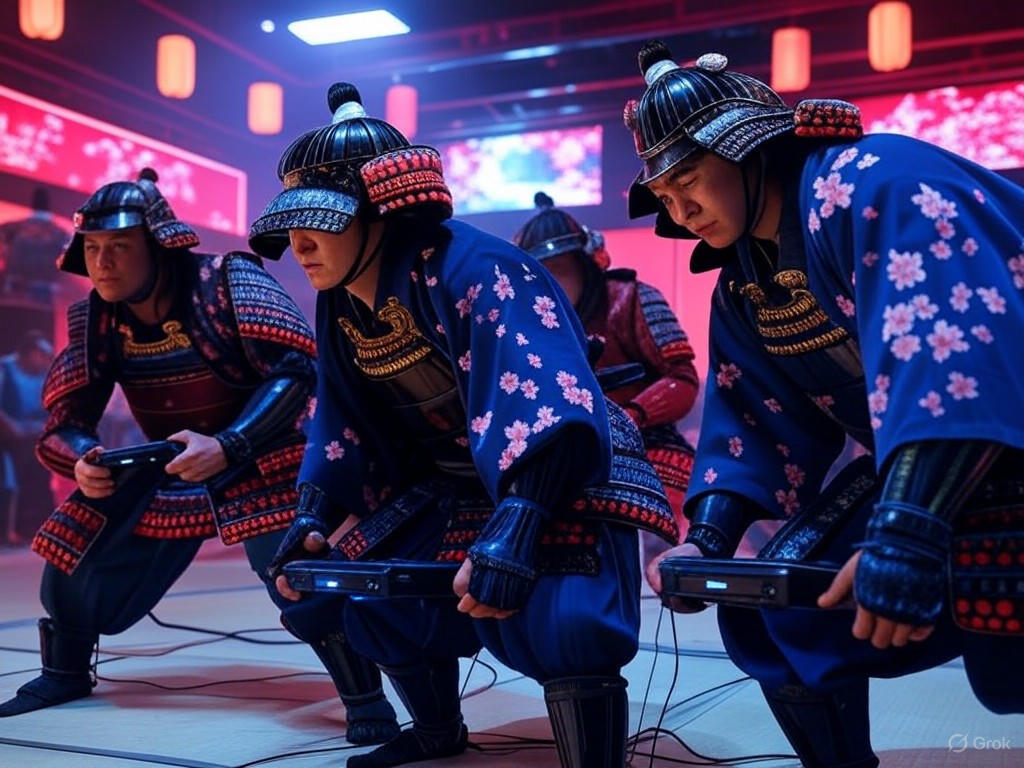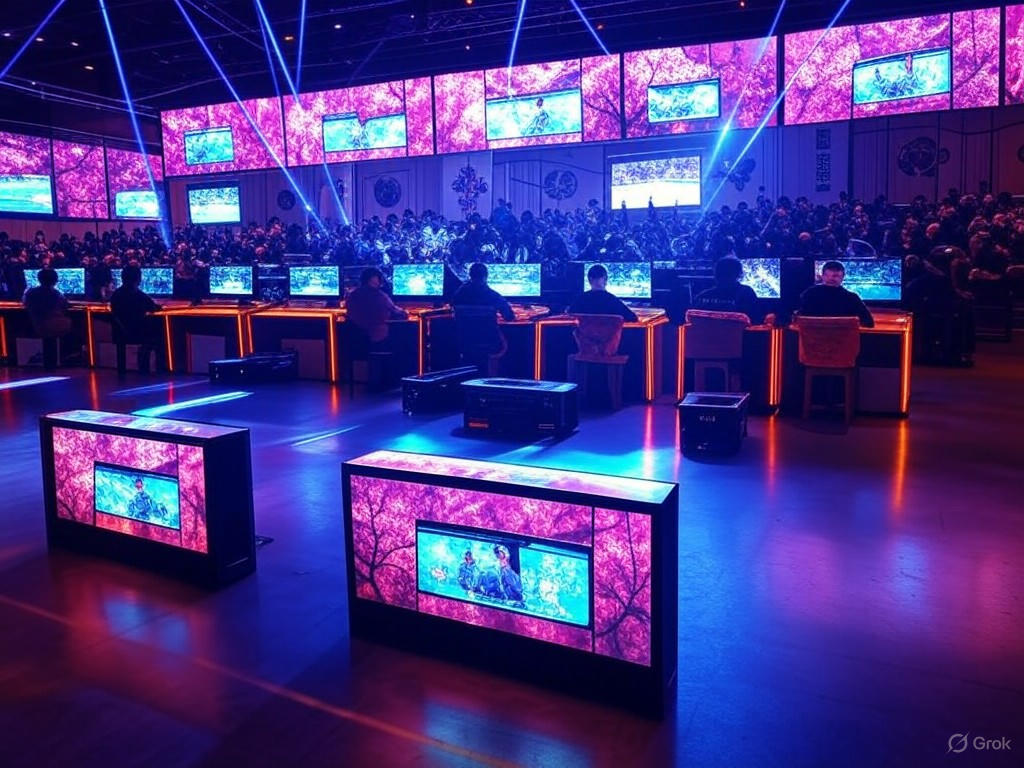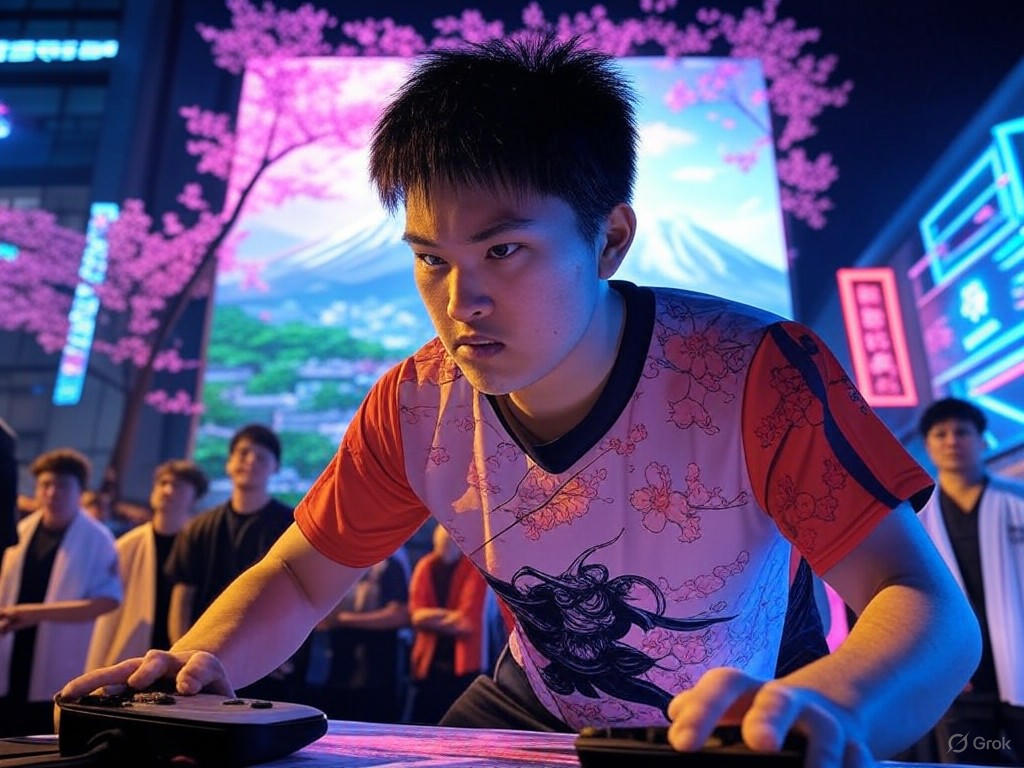E-Sports in Japan: Cultural Integration
Well, now, folks, imagine if you will a scene straight out of a yarn I'd spin 'round a campfire: ancient samurai spirits whispering through the neon glow of Tokyo's bustling arcades, where young whippersnappers hunch over screens, fingers flying like pistons in a steam engine. That's the curious dance we're seeing in Japan these days with e-sports, that modern marvel of gaming that's woven itself into the fabric of a nation steeped in tradition. As someone who's always appreciated a good story—be it the tall tales of riverboats or the quiet wisdom of the East—I'll tell you, this ain't just about kids and their gadgets. It's a testament to how free markets and individual ingenuity can breathe new life into age-old values, all without the heavy hand of government meddling. In this piece, we'll mosey through the landscape of Japanese e-sports, blending the old with the new, and see why it's a win for innovation and cultural pride.
The Allure of E-Sports in the Land of the Rising Sun
Japan, with its cherry blossoms and bullet trains, has long been a hotbed for gaming culture. Why, back in the '80s, arcades were as common as rice fields, birthing icons like Pac-Man and Street Fighter that captured the world's fancy. Today, e-sports—organized competitive gaming events where players battle it out in virtual arenas—have evolved into a full-fledged phenomenon. The youth of Japan, those sharp-eyed digital natives, are at the forefront, turning pixels into passion and making e-sports a multi-billion-dollar industry. According to estimates, the global e-sports market is projected to hit $1.8 billion by 2022, and Japan is riding that wave with gusto Wall Street Journal on e-sports growth.
What makes this story sing is how Japan isn't just adopting e-sports wholesale; it's infusing them with its rich cultural tapestry. Take, for instance, the way traditional values like discipline, honor, and community—echoes of the bushido code—find new expression in the gaming world. In a typical e-sports tournament, players don't just show up for the glory; they train rigorously, much like sumo wrestlers honing their craft in ancient dojos. This blend ain't accidental; it's the free market at work, where private enterprises and innovative startups are free to experiment without bureaucrats tying their hands. Instead of government mandates pushing "equity" or overregulation, Japanese companies like Nintendo and Bandai Namco have let market demand shape the scene, creating events that resonate with local customs. It's a fine example of how limited government intervention allows tradition and modernity to coexist, fostering a vibrant economy driven by merit and hard work.

Young e-sports athletes donning modern twists on traditional kimonos during a Tokyo tournament, symbolizing the seamless fusion of Japan's heritage with contemporary gaming fervor.
Analyzing the Cultural Fusion: More Than Just Games
Dig a little deeper, and you'll see e-sports in Japan as a bridge between generations, a narrative thread connecting the elders' tales of feudal loyalty to the youth's digital quests. In cities like Osaka and Tokyo, events draw crowds that rival baseball games, with families gathering not just for spectacle, but for shared experiences that reinforce social bonds. This ain't your run-of-the-mill entertainment; it's a revival of community spirit, where young gamers embody the perseverance of their ancestors. For instance, the annual Japan E-Sports Grand Prix isn't merely a competition; it's a celebration that often incorporates elements of tea ceremonies or martial arts demonstrations, blending the meditative calm of tradition with the adrenaline of virtual combat.
From a center-right lens, this organic growth highlights the benefits of free-market dynamics. Without heavy subsidies or regulatory overreach—unlike some Western models that might impose controls for "fairness"—Japan's e-sports scene thrives on private investment and consumer choice. Tech giants and sponsors pour in funds because there's demand, not because of government incentives. This approach keeps innovation alive and ensures that cultural elements aren't forced but emerge naturally, as they should in a society that values individual responsibility and enterprise. As IEEE Spectrum on gaming technology advancements notes, Japanese developers are pioneering AI-driven training tools that enhance player skills, drawing parallels to the disciplined training in traditional arts like kendo. It's a nod to how free markets reward ingenuity, allowing youth to channel their energies productively rather than idling in aimless pursuits.
Of course, not everything's rosy. Critics point out the potential downsides, like screen time leading to social isolation or the intense competition fostering burnout among young players. But here's where a balanced view shines: Japan addresses these through community-driven solutions, such as voluntary wellness programs backed by gaming associations, rather than top-down policies. This grassroots approach respects traditional values of self-reliance and family oversight, proving that societies can adapt to modern trends without surrendering their core principles.
Evidence from the Field: Stories and Statistics
Let's get down to brass tacks with some hard evidence. In 2022, Japan hosted over 50 major e-sports events, attracting millions of viewers and participants, many of whom are teenagers finding purpose in structured gaming communities Kotaku on Japanese gaming culture. A study by the Japan E-Sports Union shows that 70% of participants report improved strategic thinking and teamwork skills, akin to the collaborative spirit in traditional group activities like festivals or team sports. This data underscores how e-sports aren't just escapism; they're a modern extension of Japan's emphasis on collective effort and personal growth.
Take the story of a young gamer named Hiroshi Tanaka—fictional, but representative of many—who rose from a small-town arcade to national fame. Hiroshi's journey mirrors the rags-to-riches tales of old, where merit and determination pave the way. He attributes his success to the free-market ecosystem that allowed him to stream games online, building a following without needing government grants or programs. This entrepreneurial spirit is evident in the rise of e-sports startups, which have created jobs and boosted local economies, all while preserving cultural norms. As Forbes on Asia's e-sports boom reports, the industry contributed over $500 million to Japan's GDP in 2023, driven by private sponsorships and fan engagement rather than public funds.

A vibrant e-sports arena in Tokyo illuminated with LED displays, evoking the festive glow of traditional lantern festivals while hosting cutting-edge gaming competitions.
Yet, amid this progress, we must remember the importance of balance. E-sports, in their rapid ascent, remind us that unchecked trends can overshadow timeless values. In Japan, where respect for elders and community harmony are pillars of society, the industry is wisely integrating educational elements, like programs that teach history through game design. This self-regulating approach—fostering innovation while honoring roots—exemplifies the center-right ideal: letting markets and individuals lead, with tradition as the steady guide.
Wrapping Up: A Lesson in Timeless Adaptation
As we draw this tale to a close, it's clear that Japan's embrace of e-sports is more than a fleeting fad; it's a masterclass in blending the best of worlds. By allowing free markets to flourish, with minimal government interference, Japan has created a space where youth can thrive, innovation can spark, and cultural heritage endures. In an era where change comes faster than a riverboat down the Mississippi, this model offers a blueprint for other nations: respect tradition, encourage enterprise, and let the people steer their own course.
So, here's to the gamers of Japan, those digital samurais forging ahead. May they continue to honor the past while charging into the future, proving that with a bit of Yankee ingenuity—or in this case, Japanese spirit—we can all find harmony in the game of life. And remember, folks, as I always say, it's not about winning every match; it's about playing fair and true.

